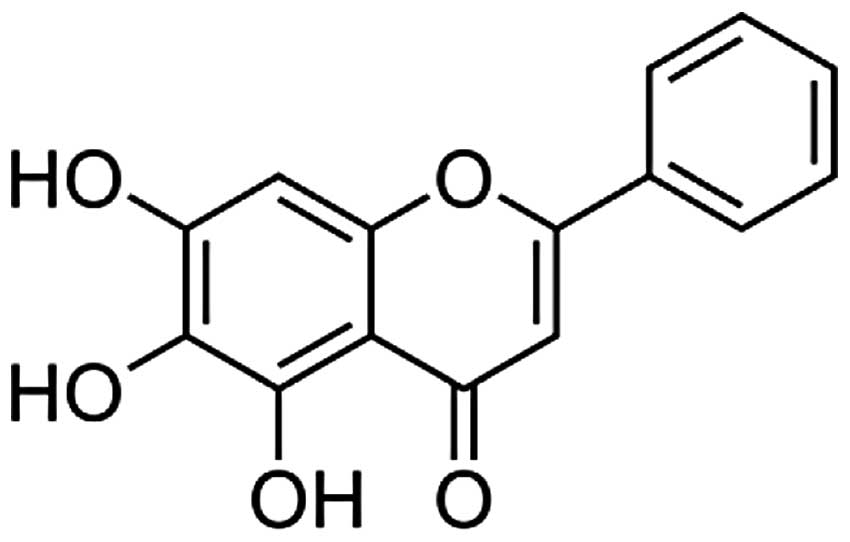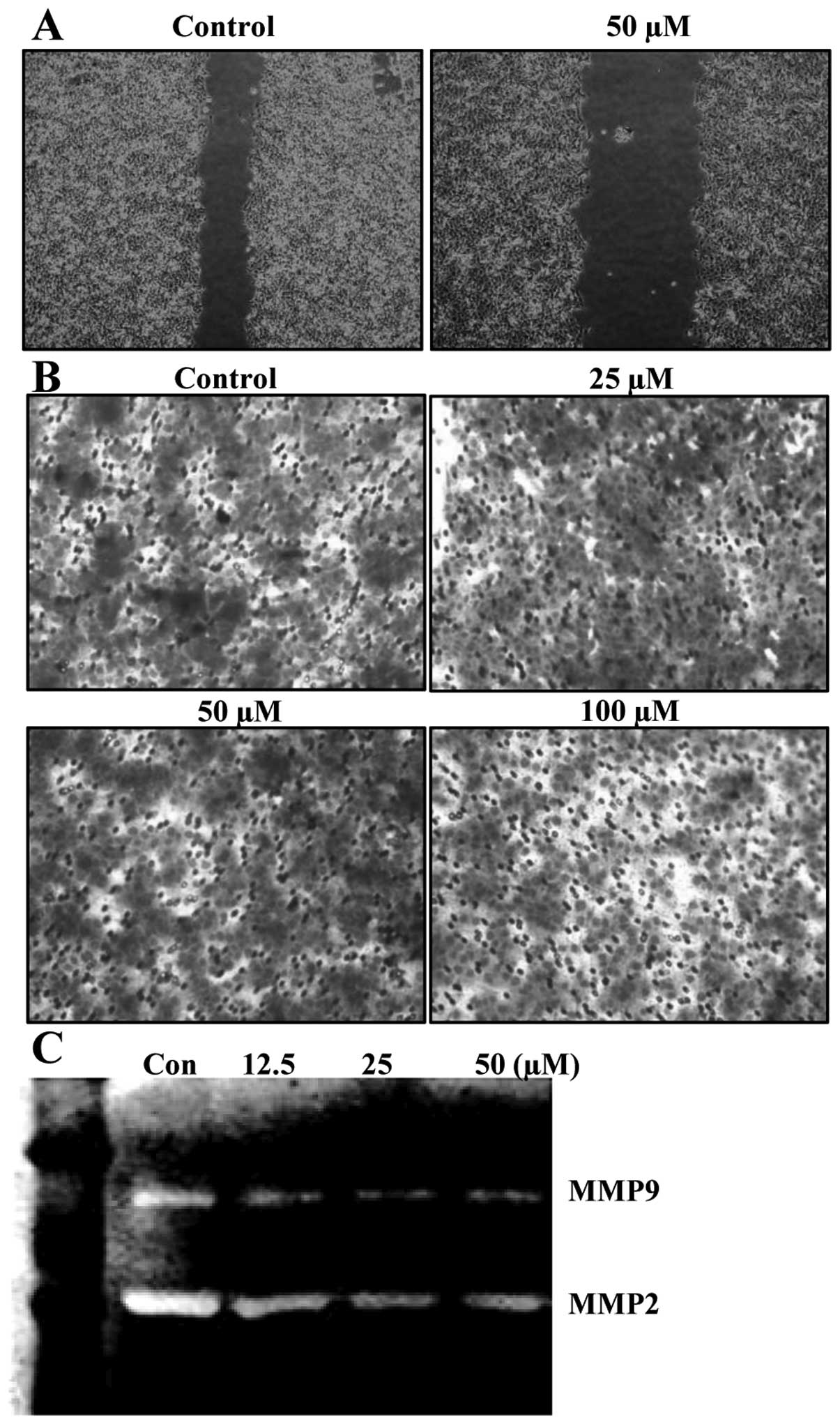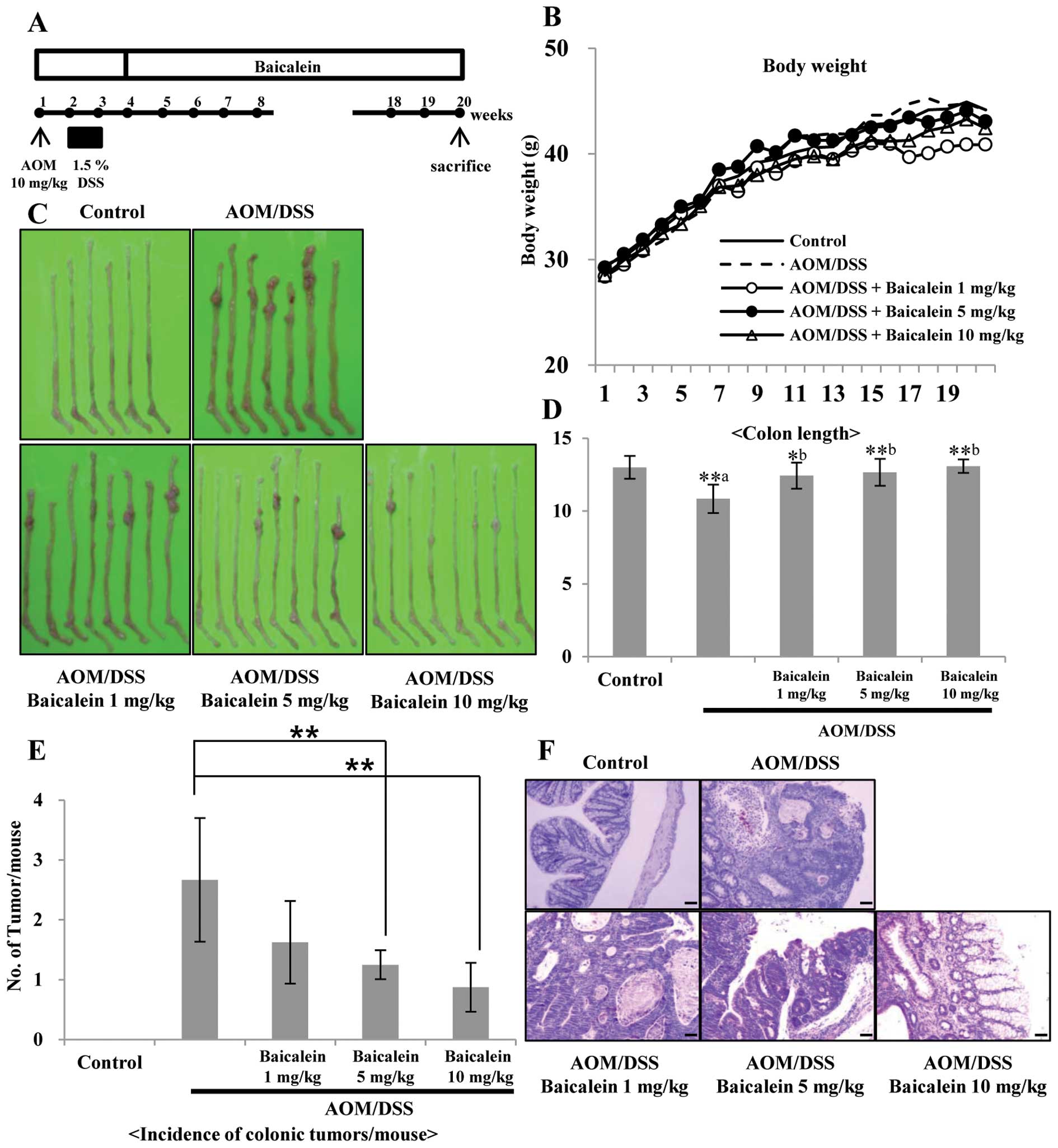|
1.
|
Tenesa A and Dunlop MG: New insights into
the aetiology of colorectal cancer from genome-wide association
studies. Nat Rev Genet. 10:353–358. 2009. View Article : Google Scholar : PubMed/NCBI
|
|
2.
|
Rubin DC, Shaker A and Levin MS: Chronic
intestinal inflammation: inflammatory bowel disease and
colitis-associated colon cancer. Front Immunol. 3:1072012.
View Article : Google Scholar : PubMed/NCBI
|
|
3.
|
Loftus EV Jr: Clinical epidemiology of
inflammatory bowel disease: Incidence, prevalence, and
environmental influences. Gastroenterology. 126:1504–1517. 2004.
View Article : Google Scholar : PubMed/NCBI
|
|
4.
|
Kim ES and Kim WH: Inflammatory bowel
disease in Korea: epidemiological, genomic, clinical, and
therapeutic characteristics. Gut Liver. 4:1–14. 2010. View Article : Google Scholar : PubMed/NCBI
|
|
5.
|
Asakura K, Nishiwaki Y, Inoue N, Hibi T,
Watanabe M and Takebayashi T: Prevalence of ulcerative colitis and
Crohn’s disease in Japan. J Gastroenterol. 44:659–665. 2009.
|
|
6.
|
Dubuquoy L, Rousseaux C, Thuru X, et al:
PPARgamma as a new therapeutic target in inflammatory bowel
diseases. Gut. 55:1341–1349. 2006. View Article : Google Scholar : PubMed/NCBI
|
|
7.
|
Bassaganya-Riera J, Reynolds K,
Martino-Catt S, et al: Activation of PPAR gamma and delta by
conjugated linoleic acid mediates protection from experimental
inflammatory bowel disease. Gastroenterology. 127:777–791. 2004.
View Article : Google Scholar : PubMed/NCBI
|
|
8.
|
Liang HL and Ouyang Q: A clinical trial of
rosiglitazone and 5-aminosalicylate combination for ulcerative
colitis. Zhonghua Nei Ke Za Zhi. 45:548–551. 2006.(In Chinese).
|
|
9.
|
Bassaganya-Riera J, DiGuardo M, Climent M,
et al: Activation of PPARgamma and delta by dietary punicic acid
ameliorates intestinal inflammation in mice. Br J Nutr.
106:878–886. 2011. View Article : Google Scholar : PubMed/NCBI
|
|
10.
|
Ricote M and Glass CK: PPARs and molecular
mechanisms of transrepression. Biochim Biophys Acta. 1771:926–935.
2007. View Article : Google Scholar : PubMed/NCBI
|
|
11.
|
Li-Weber M: New therapeutic aspects of
flavones: the anti-cancer properties of Scutellaria and its
main active constituents Wogonin, Baicalein and Baicalin. Cancer
Treat Rev. 35:57–68. 2009. View Article : Google Scholar
|
|
12.
|
Peng CY, Pan SL, Huang YW, Guh JH, Chang
YL and Teng CM: Baicalein attenuates intimal hyperplasia after rat
carotid balloon injury through arresting cell-cycle progression and
inhibiting ERK, Akt, and NF-kappaB activity in vascular
smooth-muscle cells. Naunyn Schmiedebergs Arch Pharmacol.
378:579–588. 2008. View Article : Google Scholar
|
|
13.
|
Lee EK, Kim JM, Choi J, et al: Modulation
of NF-kappaB and FOXOs by baicalein attenuates the
radiation-induced inflammatory process in mouse kidney. Free Radic
Res. 45:507–517. 2011. View Article : Google Scholar : PubMed/NCBI
|
|
14.
|
Lea MA, Ibeh C, Deutsch JK, Hamid I and
desBordes C: Inhibition of growth and induction of alkaline
phosphatase in colon cancer cells by flavonols and flavonol
glycosides. Anticancer Res. 30:3629–3635. 2010.PubMed/NCBI
|
|
15.
|
Pidgeon GP, Kandouz M, Meram A and Honn
KV: Mechanisms controlling cell cycle arrest and induction of
apoptosis after 12-lipoxygenase inhibition in prostate cancer
cells. Cancer Res. 62:2721–2727. 2002.PubMed/NCBI
|
|
16.
|
Chao JI, Su WC and Liu HF: Baicalein
induces cancer cell death and proliferation retardation by the
inhibition of CDC2 kinase and survivin associated with opposite
role of p38 mitogen-activated protein kinase and AKT. Mol Cancer
Ther. 6:3039–3048. 2007. View Article : Google Scholar : PubMed/NCBI
|
|
17.
|
Hsieh CJ, Hall K, Ha T, Li C, Krishnaswamy
G and Chi DS: Baicalein inhibits IL-1beta- and TNF-alpha-induced
inflammatory cytokine production from human mast cells via
regulation of the NF-kappaB pathway. Clin Mol Allergy. 5:52007.
View Article : Google Scholar : PubMed/NCBI
|
|
18.
|
Takahashi H, Chen MC, Pham H, et al:
Baicalein, a component of Scutellaria baicalensis, induces
apoptosis by Mcl-1 down-regulation in human pancreatic cancer
cells. Biochim Biophys Acta. 1813:1465–1474. 2011.
|
|
19.
|
Ma Z, Otsuyama K, Liu S, et al: Baicalein,
a component of Scutellaria radix from Huang-Lian-Jie-Du-Tang
(HLJDT), leads to suppression of proliferation and induction of
apoptosis in human myeloma cells. Blood. 105:3312–3318.
2005.PubMed/NCBI
|
|
20.
|
Lee DH, Kim C, Zhang L and Lee YJ: Role of
p53, PUMA, and Bax in wogonin-induced apoptosis in human cancer
cells. Biochem Pharmacol. 75:2020–2033. 2008. View Article : Google Scholar : PubMed/NCBI
|
|
21.
|
Zhang HB, Lu P, Guo QY, Zhang ZH and Meng
XY: Baicalein induces apoptosis in esophageal squamous cell
carcinoma cells through modulation of the PI3K/Akt pathway. Oncol
Lett. 5:722–728. 2013.PubMed/NCBI
|
|
22.
|
Zhang Y, Song L, Cai L, Wei R, Hu H and
Jin W: Effects of baicalein on apoptosis, cell cycle arrest,
migration and invasion of osteosarcoma cells. Food Chem Toxicol.
53:325–333. 2013. View Article : Google Scholar : PubMed/NCBI
|
|
23.
|
Bonham M, Posakony J, Coleman I,
Montgomery B, Simon J and Nelson PS: Characterization of chemical
constituents in Scutellaria baicalensis with antiandrogenic
and growth-inhibitory activities toward prostate carcinoma. Clin
Cancer Res. 11:3905–3914. 2005.PubMed/NCBI
|
|
24.
|
Lorenzo HK and Susin SA: Therapeutic
potential of AIF-mediated caspase-independent programmed cell
death. Drug Resist Updat. 10:235–255. 2007. View Article : Google Scholar : PubMed/NCBI
|
|
25.
|
Yamaguchi K, Cekanova M, McEntee MF, et
al: Peroxisome proliferator-activated receptor ligand MCC-555
suppresses intestinal polyps in ApcMin/+ mice via extracellular
signal-regulated kinase and peroxisome proliferator-activated
receptor-dependent pathways. Mol Cancer Ther. 7:2779–2787.
2008.PubMed/NCBI
|
|
26.
|
Surh YJ: NF-kappa B and Nrf2 as potential
chemopreventive targets of some anti-inflammatory and antioxidative
phytonutrients with anti-inflammatory and antioxidative activities.
Asia Pac J Clin Nutr. 17(Suppl 1): 269–272. 2008.PubMed/NCBI
|
|
27.
|
Rajakangas J, Misikangas M, Paivarinta E
and Mutanen M: Chemoprevention by white currant is mediated by the
reduction of nuclear beta-catenin and NF-kappaB levels in Min mice
adenomas. Eur J Nutr. 47:115–122. 2008. View Article : Google Scholar : PubMed/NCBI
|
|
28.
|
Chiu YW, Lin TH, Huang WS, et al:
Baicalein inhibits the migration and invasive properties of human
hepatoma cells. Toxicol Appl Pharmacol. 255:316–326. 2011.
View Article : Google Scholar : PubMed/NCBI
|
|
29.
|
Aoyagi Y, Nagata S, Kudo T, et al:
Peroxisome proliferator-activated receptor gamma 2 mutation may
cause a subset of ulcerative colitis. Pediatr Int. 52:729–734.
2010. View Article : Google Scholar : PubMed/NCBI
|
|
30.
|
Yamamoto-Furusho JK, Penaloza-Coronel A,
Sanchez-Munoz F, Barreto-Zuniga R and Dominguez-Lopez A: Peroxisome
proliferator-activated receptor-gamma (PPAR-gamma) expression is
downregulated in patients with active ulcerative colitis. Inflamm
Bowel Dis. 17:680–681. 2011. View Article : Google Scholar : PubMed/NCBI
|




















